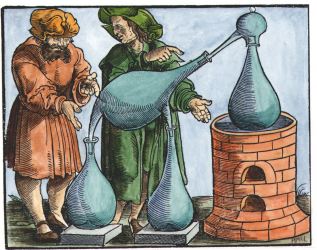| Author | Post |
|---|
Tom Willard
Member

| Joined: | Mon May 5th, 2008 |
| Location: | Tucson, Arizona USA |
| Posts: | 96 |
| Status: |
Offline
|
|
Posted: Mon Jan 12th, 2009 11:53 pm |
|
Not a scholarly article but a fine poem in the Jan. 5, 2009, issue of The New Yorker, at page 42. The opening quotation is from section 24 of the Aesclepius:
http://www.newyorker.com/fiction/poetry/2009/01/05/090105po_poem_wilbur2
|
Carl Lavoie
Member
| Joined: | Wed Feb 25th, 2009 |
| Location: | Canada |
| Posts: | 215 |
| Status: |
Offline
|
|
Posted: Wed Apr 4th, 2012 04:30 am |
|
.
After opening his study on apocryphal and pseudographical works with the case of this Commentary on Matthew 24:51 (“...there shall be weeping and gnashing of teeth”) that state that those who died toothless will be provided teeth, the late Bruce Metzger enumerates eight (8) ‘Motives of Ancient Pseudepigraphers’, among which he discuss the motive of ‘the desire to honor a respected teacher’ (which he differentiate from ‘modesty’) :
.......................................
According to Iamblichus (ca. A.D. 250 – ca. 325), it is more honorable and praiseworthy to publish one’s philosophical treatises in the name of so venerable a teacher [Pythagoras]. Very rarely indeed, Iamblichus tell us, have Pythagoreans ascribed to themselves the glory of their inventions, and very few are known as authors of their own works. Thus it was, as Moffat put it, nothing more than “innocent admiration and naïve sympathy which prompted a disciple to reproduce in his own language the ideas, or what he conceived to be the ideas, of his master, and yet forbade him, out of modesty, to present these under his own name.”
- Bruce M. Metzger, “Literary Forgeries and Canonical Pseudepigrapha”, in Journal of Biblical Literature, Vol. 91, No. 1, pp. 3-24.
......................................
One wonders just how much of the alchemical literature this sole motive covers.
Anyway, noting that “attention should be drawn to several heterogeneous bodies of religio-philosophical treatises which gravitated around three mythical or semi-mythical figures: Orpheus, the Sybil, and Hermes Trismegistus”, he cite in a footnote: Joseph A. Sint, Pseudonymität im Altertum, ihre Gründe, (Innsbruck: Universitätsverlag, 1960), pp. 25 – 67.
Did someone has already read this paper ?
.Last edited on Wed Apr 4th, 2012 01:49 pm by Carl Lavoie
|
Paul Ferguson
Member

| Joined: | Fri Feb 15th, 2008 |
| Location: | |
| Posts: | 1538 |
| Status: |
Offline
|
|
Posted: Wed Apr 4th, 2012 11:03 am |
|
Carl Lavoie wrote:
.
Anyway, noting that “attention should be drawn to several heterogeneous bodies of religio-philosophical treatises which gravitated around three mythical or semi-mythical figures: Orpheus, the Sybil, and Hermes Trismegistus”, he cite in a footnote: Joseph A. Sint, Pseudonymität im Altertum, ihre Gründe, (Innsbruck: Universitätsverlag, 1960), pp. 25 – 67.
Did someone has already read this paper ?
.
Hi Carl,
I can't find it on-line but there's a copy for sale here (please note correct title):
http://www.abebooks.de/Pseudonymit%C3%A4t-Altertum-Formen-Gr%C3%BCnde-SINT-JOSEF/1402155728/bd
|

Current time is 09:43 am | |
|
|
|

